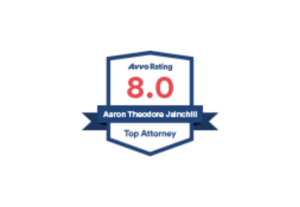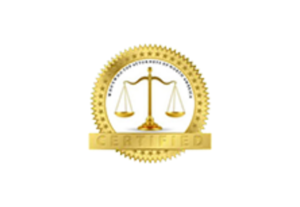
To file a workers’ compensation claim in Connecticut, you must complete Form 30C, send the original to your employer, and send a copy to the Workers’ Compensation Commission District Office.
While filing a workers’ compensation claim should be straightforward, getting the benefits you deserve can sometimes be challenging. Discuss your case with an experienced Hartford workers’ compensation attorney at Jainchill & Beckert, LLC. Our skilled team can review your situation and help you build a solid claim.
How Long Do I Have to File a Workers’ Compensation Claim in CT?
Connecticut requires that employees injured on the job file their workers’ compensation claim within one year of the injury date. For an occupational disease or illness, employees have three years from the date symptoms first appear.
How Long Do I Have to Report My Work Injury?
Technically, employees should report work-related injuries to their manager or supervisor as soon as possible. Your chances of recovering compensation for your injuries increase when you report the accident immediately and file a workers’ compensation claim soon after. Waiting too long to do either can jeopardize your claim and lead your workplace and insurer to question the severity of your injury and perhaps deny your claim.
How Much Does Workers’ Compensation Pay in CT?
Workers’ compensation benefits generally pay a portion of an injured person’s lost wages. The basic compensation rate for injured workers in Connecticut is 75 percent of an employee’s net average weekly wage. However, weekly compensation benefits are capped based on the average weekly earnings of all Connecticut employees.
Connecticut workers’ compensation can also cover the following:
- Medical bills
- Travel expenses for treatment
- Wage replacement
- Temporary disability
- Permanent disability
- Injury recurrence or relapse
- Disfigurement and scarring
- Vocational rehabilitation
Can I Be Fired While on Workers’ Compensation?
You cannot legally get fired because you’re receiving workers’ compensation benefits for a work-related injury. It is illegal for an employer to fire, demote, or otherwise retaliate against an injured employee for receiving workers’ compensation benefits. However, an employer can terminate an employee for cause at any time, even if they are off work because of an occupational injury.
Working with an experienced Connecticut workers’ compensation attorney not only helps you pursue the benefits you deserve, but an attorney can also protect your rights if your employer tries to harass or retaliate against you.
What Should I Do If My Employer Will Not File an Accident Report for My Work Injury?
In most situations, an employer must report the workplace accident to the workers’ compensation carrier. When an employer does not file an accident report for your workplace injury, it can stall the workers’ compensation benefits process and potentially jeopardize your claim.
This scenario is another example of why involving a skilled Connecticut workers’ compensation attorney in the claim process is vital. While you focus on your recovery, your attorney can focus on gathering and preserving the evidence needed to build a strong compensation claim. If your employer refuses to file an accident report or is dragging their feet, making it more likely you’ll miss a critical filing deadline, contact an attorney for help.
Why Would a Workers’ Compensation Claim Be Denied?
An insurer can deny a Connecticut workers’ compensation claim for numerous reasons. Some of the most common reasons an insurer issues a denial include:
- The employee failed to promptly notify their employer of the accident – Workers’ compensation claims often get denied because the employee didn’t inform their employer about the accident as soon as reasonably possible. Injured employees must notify their employer about the workplace accident. The sooner, the better. Failing to report the accident and injury can open your claim up to questions about whether the accident happened at all.
- The accident is not work-related – Qualifying for workers’ compensation benefits means a workplace accident must occur while an employee conducts work-related activities. In most situations, commuting to and from work is not workplace-related. A person injured in a car accident during their commute typically cannot claim workers’ compensation benefits. Accidents occurring off-site while an employee is off duty are also generally not considered work-related accidents.
- The employee is not covered by workers’ compensation insurance – The Connecticut workers’ compensation program covers nearly all full and part-time workers in the state. However, there are some exceptions. Independent contractors and freelancers do not receive workers’ compensation benefits because they are not technically “employees.”
- The insurer believes the worker is not injured – Not all injuries are obvious. Invisible injuries like repetitive stress injuries, muscle strain, and back injuries are not like broken bones. You can’t see the injury or its impact on a person’s well-being. Some insurers may deny benefits by claiming the employee was not actually injured in the accident.
- The injury is considered a pre-existing condition – An insurer can also attempt to deny a claim by arguing that the worker suffered a pre-existing injury or had a pre-existing condition that is the cause of their current symptoms.
What Should I Do If My Claim Has Been Denied?
When you file a workers’ compensation claim in Connecticut, you must report the injury to your employer, seek prompt medical treatment, and file a timely “written notice of claim.” If you don’t follow this process or the insurer finds a reason to deny your claim, you could miss out on valuable financial benefits.
If your workers’ compensation claim gets denied, it is time to consult an attorney for help. An experienced Connecticut workers’ compensation attorney can help you gather the evidence you need to dispute the denial and represent you during your initial informal hearing.
Contact a Connecticut Workers’ Compensation Lawyer
The team at Jainchill & Beckert, LLC understands how the relatively simple process of seeking workers’ compensation benefits can quickly turn complicated. You do not have to navigate the process alone. Pursue the benefits you deserve with the help of a trusted Connecticut workers’ compensation lawyer today. Contact our office for a free legal consultation.



















